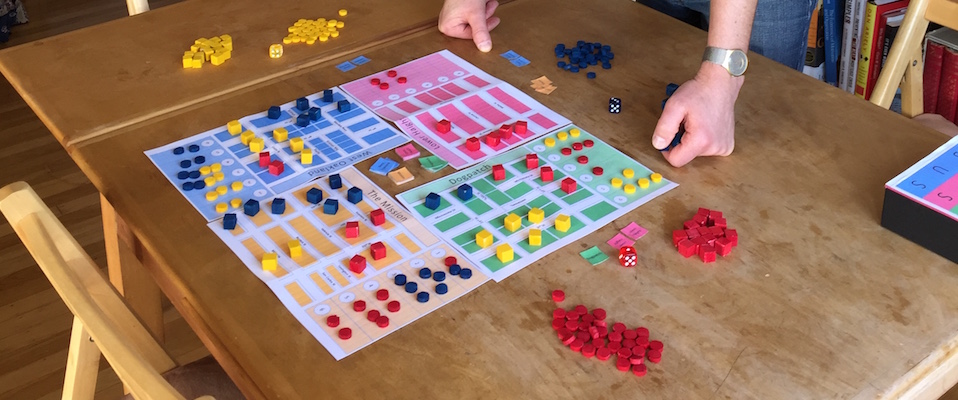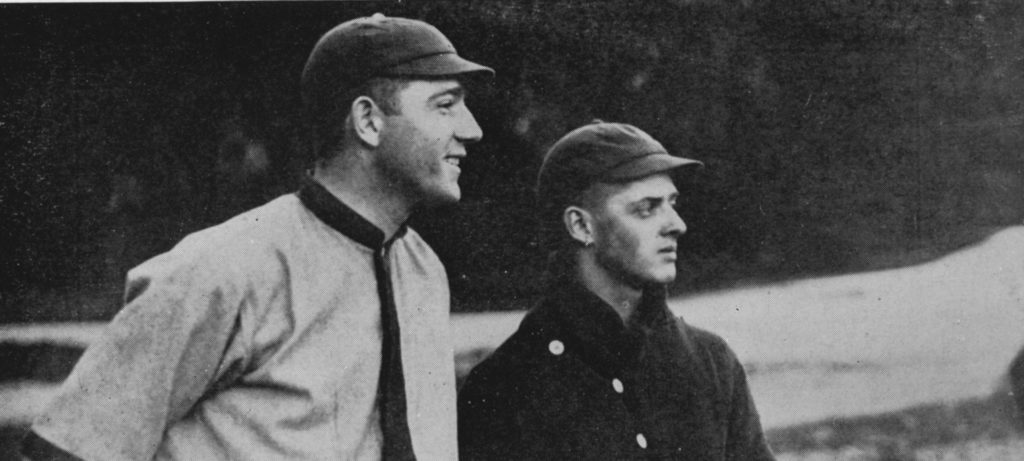Daniel Acland’s addiction to tabletop games began when he was a child, starting with the gateway game: Monopoly— “arguably the worst-designed board game ever to achieve commercial success,” he said. As a professor of public policy at Berkeley, his gaming experience often intersects with his expertise. For instance, in a brief analysis of Monopoly, Acland says the game sells because it allows people to “bicker, and trash-talk one another, and to watch as, once again, one totally undeserving player, for absolutely no justifiable reason, utterly destroys all the others.”
“Which is exactly why Monopoly was originally designed,” Acland says. “To teach people about the horrors of urban land ownership.”
Acland prefers to play games based on real-world challenges, such as Pandemic—a game in which players work as members of the Center for Disease Control to fight illness.

“The game is brilliantly designed so that you almost always snatch defeat out of the jaws of victory, which makes you desperately want to try again,” he says. “You just can’t stand the fact that you didn’t save the world.”
Acland is in the midst of designing a three-player table-top game about gentrification, in which a “market-rate housing developer, a low-income housing advocate, and a hipster artist duke it out to see who can achieve their preferred neighborhood composition in the hot, gentrifying neighborhoods of the Bay Area.” He describes it as a “eurogame” or “European-style” game, which emphasizes strategy over luck or drama—as opposed to “Ameritrash” or “American-style” tabletop games that highlight conflict and focus character interaction through combat.
His game also includes “gamification,” which is game design used to encourage people to take action in real life. Though most gamification is used to get people to buy stuff, Acland says that the public health field is using it more now to motivate healthy behavior (e.g., health and fitness apps).
“The games I love are the ones that you play over chips and salsa and cheap soda with your geek friends on a Friday night and you come away feeling like the happiest, best-loved person in six counties,” Acland says.
After becoming addicted to an online version of Boggle, Acland and his officemates designed a “self-control” device to help “Boggle addicts” control their length of gameplay. A dialog box pops up when a player logs in and prompts them to set a limit to how many games they can play. Even if they don’t set a limit at the start, a button appears after each Boggle game that says: “Play one more game.”
“If a player clicks it, the game shuts down after the next game, allowing them to get their immediate fix of ‘one more game’ and then quit,” Acland says. “It worked pretty well. But I got so addicted I just had to stop. That’s part of why I don’t play video games. Too addictive.”
Acland presented his self-control device for the first time this August at a small conference on consumer habits.
When asked if he gets really into the competitive aspect of games, Acland says he prefers games that are more about bonding and working on a team.
“It’s true that playing chess is more prestigious, and playing video games is more exciting, but both of them, to me, are socially isolative experiences, even if the people you are playing against happen to be in the same room,” Acland says. “The games I love are the ones that you play over chips and salsa and cheap soda with your geek friends on a Friday night and you come away feeling like the happiest, best-loved person in six counties.”
Despite all that, he does admit to once leaping up at a sidewalk café and doing a victory dance around a fire hydrant after winning a heated game of original, non–computer-based Boggle.
“I have never lived it down,” Acland says.





















